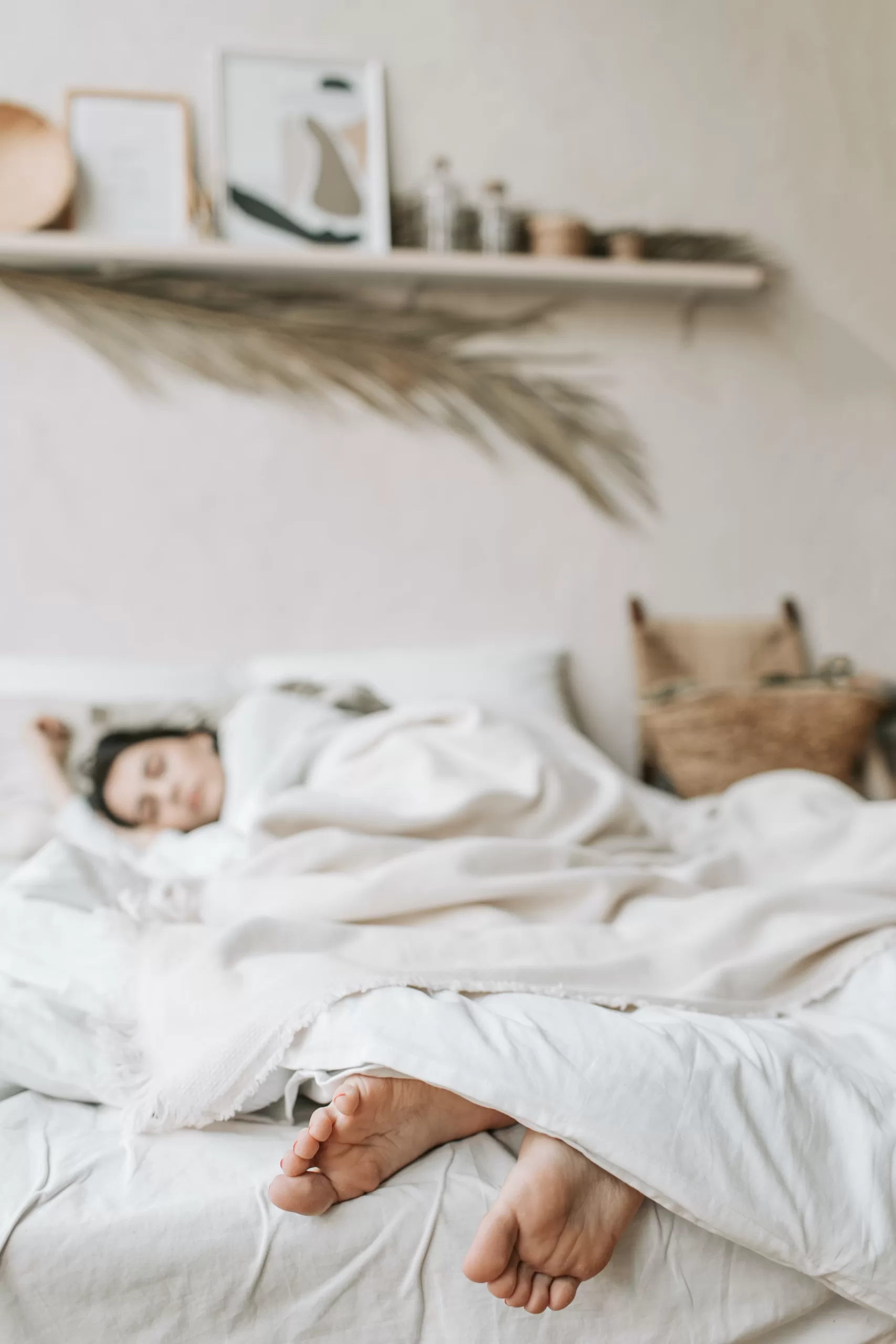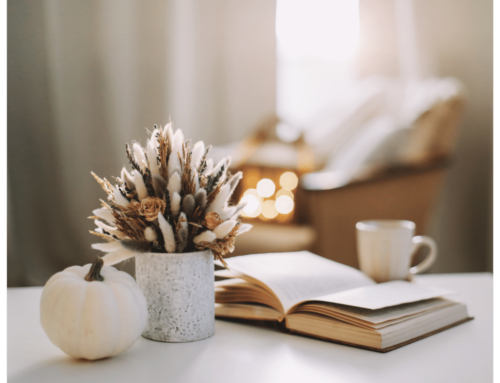Like many of you, I’ve wrestled with sleep issues. Those restless nights, the constant tossing and turning, and the groggy mornings have been all too familiar. The reasons for these struggles can be vast: from the relentless stress of daily life, the demands of raising children, hormonal changes, and the physical discomforts of health issues to the ever-present glow of screens disrupting our natural sleep rhythms. But this journey led me to understand the profound importance of sleep and how it evolves as we age. Let’s dive in and learn effective sleep strategies for those those restless nights.
Why Sleep is Non-Negotiable for Health:
- Cognitive Function: Sleep is when our brain processes and consolidates memories. It’s essential for learning, problem-solving, and maintaining focus.
- Emotional Well-being: Lack of sleep can lead to mood swings, anxiety, and depression.
- Physical Health: Sleep plays a role in healing, growth, and even regulating hunger hormones.
- Immune Function: A good night’s sleep strengthens our immune system, helping fend off illnesses.
Sleep Through Everyone’s Life Stages:
- Infancy to Childhood: Rapid growth and brain development make sleep crucial, often requiring up to 14 hours daily.
- Teenage Years: With puberty, sleep patterns shift. Teens often feel more awake at night but still need 8-10 hours.
- Adulthood: Consistent 7-9 hours of sleep is vital for optimal functioning, though many adults struggle to achieve this.
- Senior Years: While sleep patterns might change, the elderly still need 7-8 hours. However, they might experience lighter sleep stages and frequent awakenings.
Common Causes of Sleep Issues For Women Through the Decades:
- 20s: This is a decade of exploration and, often, irregular sleep patterns. Women may also start families during these years, and pregnancy and infants can greatly affect women’s sleep cycles.
- 30s: Many women juggle careers and/or families during these years, which can affect their stress levels. Hormonal changes from pregnancy and infants may still affect women through their 30s.
- 40s: During perimenopause, which starts in most women in their early 40’s, fluctuating estrogen levels can lead to sleep disturbances, including difficulties falling asleep and nighttime hot flashes.
- 50s and Beyond: In post-menopausal women, the decline in estrogen and progesterone can result in lighter sleep stages, frequent awakenings, and increased susceptibility to sleep disorders like sleep apnea.
Sleep Strategies for Your Best Night’s Sleep:
Consistent Schedule:
Our bodies thrive on routine. Going to bed and waking up at the same time daily reinforces your body’s natural circadian rhythm, making it easier to fall asleep and wake up naturally. Over time, this consistency can lead to improved sleep quality.
Optimal Bedroom Environment:
Your bedroom should be a sleep sanctuary. Ensuring a dark, quiet, and cool environment can signal your body that it’s time to wind down. Consider investing in blackout curtains to block out light, using earplugs or white noise machines to drown out disruptive noises, and adjusting the room temperature to be slightly cooler, as cooler environments often promote better sleep.
Limit Screen Time:
Electronic devices emit blue light, which can interfere with melatonin production, the hormone responsible for sleep regulation. Switching off devices an hour before bed allows your body to produce melatonin naturally, aiding in more restful sleep.
Mindful Eating:
What you eat can directly impact your sleep. Large meals, especially those high in sugar or caffeine, can keep you awake. Avoiding these close to bedtime and opting for light, easily digestible foods reduces the risk of sleep disturbances.
Physical Activity:
Regular physical activity can help you fall asleep faster and enjoy deeper sleep. However, it’s essential to time it right. Exercising too close to bedtime can have the opposite effect, so aim for morning or early afternoon workouts.
Relaxation Techniques:
Activities like meditation, deep breathing exercises, or reading can calm the mind and prepare the body for sleep. These techniques can reduce stress and anxiety, common culprits of sleeplessness.
Limit Caffeine and Alcohol:
Both caffeine and alcohol can interfere with your sleep cycle. While alcohol might initially make you sleepy, it can disrupt the REM stage of sleep, leading to a less restful night. Caffeine, a stimulant, can keep you awake if consumed later in the day. Aim to limit their intake, especially in the hours leading up to bedtime.
Comfortable Sleep Setup:
Invest in a good mattress and pillows. Your sleeping setup should support your body’s natural alignment and reduce pressure points, leading to a more comfortable and restful sleep.
Seek Professional Help:
If you’ve tried multiple strategies and still struggle with sleep, it might be time to consult a sleep specialist. Underlying conditions like sleep apnea or insomnia might be the cause, and professional guidance can provide tailored solutions.
Sleep, for me, has been a journey of understanding, patience, and consistent effort. I hope these insights and strategies help you find the restful night you deserve.
Next, check out The Hidden Sugar Effect: Impacts to Your Health.







![🍂✨ It’s Time for Thanksgiving Reflections! ✨🍂
Hey everyone!
Today, I’m inviting you to join a very special journey on my blog - “A Thanksgiving to Remember: Embracing the Bittersweet Beauty of Change.” This year, Thanksgiving is more than just a holiday; it’s a reflection on life’s fleeting moments, the ‘lasts’ that sneak up on us, and the joy of new beginnings.
👩👧👦 Whether it’s the nostalgia of past Thanksgivings, the thrill of new traditions, or the bittersweet feeling of an empty chair at the table, we all have stories that make this time of year unique.
➡️ Read the full post [Link in Bio and Story] and let’s share the warmth and wisdom this season brings.
📲 I would love to hear from you – your traditions, memories, and what Thanksgiving means to you. Let’s make this Thanksgiving one for the books!
#ThanksgivingMemories #ShareYourThanksgiving #FamilyTraditions #BlogPost #HeartfeltStories #KidsGrowUp #HolidayAfterLoss](http://hearthandhighlight.com/wp-content/plugins/instagram-feed-pro/img/placeholder.png)